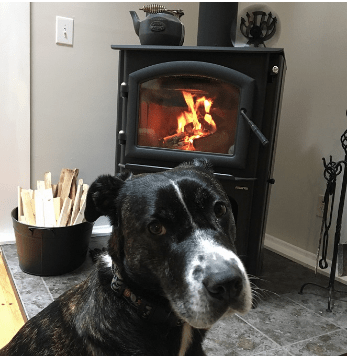
Is your home or business ready for a heating update in 2021? Ready to opt out of oil and do your part to help the state meet its goal of 90 percent renewable energy by 2050? Many rebates and incentives are available to Vermonters interested in switching to wood heat this year. Heating homes or businesses with locally sourced wood fuel displaces fossil fuels, keeps dollars in Vermont, and keeps woodlands intact through sustainable local forest markets and management.
“Most Vermonters are familiar with wood stoves, but many folks aren’t aware of the latest advances in wood heating technology,” said Emma Hanson, Wood Energy Coordinator at the Vermont Department of Forests, Parks and Recreation. “For example, a new EPA-certified wood stove produces 75 percent less pollution than an older model, and an automated pellet boiler can completely replace your fossil fuel boiler with the same hands-free convenience that you’re used to. There are some amazing options and rebates to help make the switch.”
As of Jan. 1, 2021 residential wood heaters including stoves, furnaces and boilers with at least 75 percent efficiency are eligible for a 26% Federal tax credit. The tax credit and all the rebates can be combined. Here’s a list of available rebates:
EPA Certified Stoves
$500 point-of-purchase rebate through Efficiency Vermont, plus an additional $100 if you are turning in an older model
$250 rebate for Washington Electric Coop members
$150 bill credit for Vermont Electric Coop members (pellet only)
$150 rebate for Stowe Electric members (pellet only)
Note – If you purchased an eligible new stove in 2020, you’re still eligible for a $300 Federal tax credit. That has been replaced in 2021 by the 26% version.
Pellet Boilers/Furnaces
$3000 from Efficiency Vermont
$3000 from the Clean Energy Development Fund (accessed via Efficiency Vermont)
$1000/$500 for Washington Electric Coop members for boilers/furnaces
For homeowners heating with coal, 2021 is a great time to switch to wood heat. The tax credit and above rebates can be combined with an additional special coal changeout incentive from the Clean Energy Development Fund of up to $7000 for residential projects.
For a full list of residential and commercial rebates, visit https://fpr.vermont.gov/woodenergy/rebates. For more information on modern wood heat, visit www.feelgoodheat.org.



